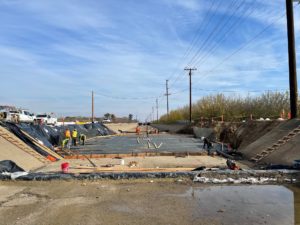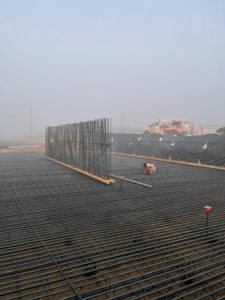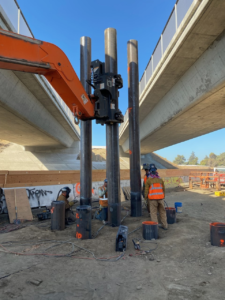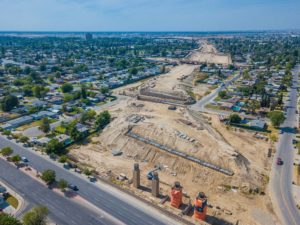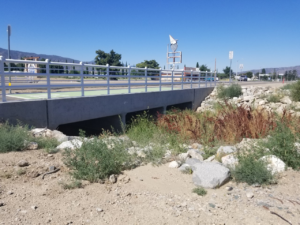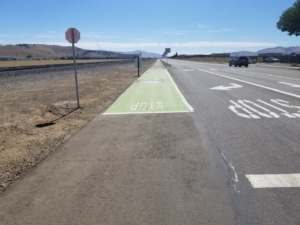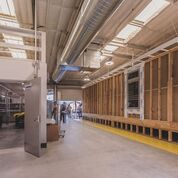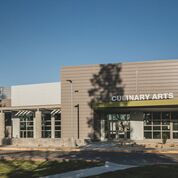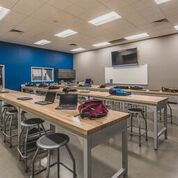BSK Associates has proudly partnered with AECOM to provide Quality Assurance Materials Testing and Source Inspection services for Phases 3 and 4 of the Centennial Corridor Project as part of the City of Bakersfield’s Thomas Roads Improvement Program. The Centennial Corridor Project constructs a new alignment and provides route continuity for State Route 58 from Cottonwood Road on existing SR 58 (East) to Interstate 5 (West).
The $48.6 million dollar Phase 3 project, known as Bakersfield Freeway Connector Project includes reconstruction of the westbound and southbound loop ramp at SR 99 entrance to Ming Avenue off-ramp and a new barrier-separated connector ramp to Ming Avenue. Major design elements include constructing two (2) new cast-in-place post tensioned prestress box girder bridges with four spans 1,165 feet in length and 39 feet wide, and one (1) cast-in-place post-tensioned box girder approximately 40 feet wide and 392 feet in length to widen the existing bridge, one (1) cast-in-place concrete pumping station with storage box and several retaining walls.
The $147 million dollar Phase 4 project, known as Mainline includes construction of a new freeway section between SR 99 and the Westside Parkway as part of the future SR 58 Centennial Corridor. The project includes construction of ten (10) new bridges including one (1) Viaduct, four (4) undercrossings, three (3) overcrossings, and two (2) connector overcrossings. In total, there will be approximately 40,000 cubic yards of concrete placed for bridge deck structures, approximately 673,000 cubic yards of import borrow, 41,100 tons of HMA paving, 41,200 cubic yards of continually reinforced concrete paving, and more than 83,000 linear feet of precast and cast-in-drilled hole concrete piling to support the structures.
BSK Associates has proudly served the City of Bakersfield and the surrounding communities since 1972. Bakersfield Freeway Connector Project and Centennial Corridor Mainline photos by City of Bakersfield.

